Not if but how to use artificial intelligence in the education process? What is the role of universities in the process of global digital transformation? How will digitalization change the future of learning and teaching?
These and many other questions inspired by technological change were addressed by participants of the Digital Universities Europe conference, which took place from March 10 to 12 in Wrocław.
350 experts from over 30 countries around the world – university representatives including methodologists, lecturers, faculty authorities, as well as representatives of educational institutions and companies producing and implementing IT technologies supporting the educational process – confronted difficult questions concerning the future of universities.
The conference organizer, Times Higher Education, ensured opportunities for networking and free exchange of ideas during panel discussions and workshops. Representatives of the University of Lower Silesia (DSW) also took part in the debate. Magdalena Nowak, Deputy Chancellor for Didactic Management, during a workshop on digital transformation, drew attention to the role of human capital management and organizational culture as key elements of any change – especially one of a global nature, such as digitalization.
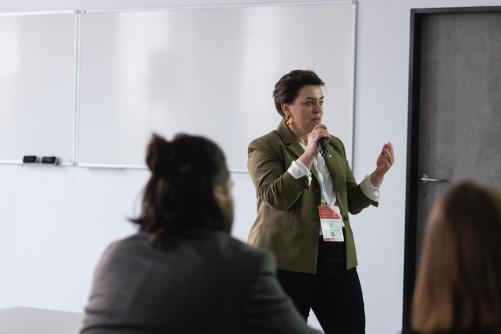
Dr. Barbara Muszyńska, in a panel on assessment models in the age of AI, spoke about the significant change occurring in the process of teaching and evaluating students. This is not just a discussion about exam formats, but about ethical and effective ways for academic teachers and students to use artificial intelligence. Both groups must learn to incorporate elements of critical and honest assessment of achievements into the education process, drawing from the valuable and constructive opportunities that artificial intelligence offers
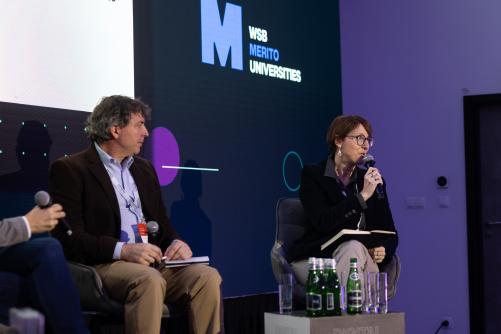
Shaping attitudes - ethical and honest use of technology - is the university's role. The issue of human competence, as an individual making managerial decisions, building teams, choosing technologies, and designing frameworks for their use, was unquestionably the main theme of most presentations. The focus on people and their competencies connected the perspectives of educators, university authorities, and IT teams alike
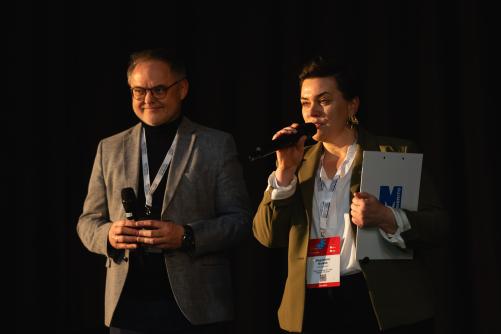
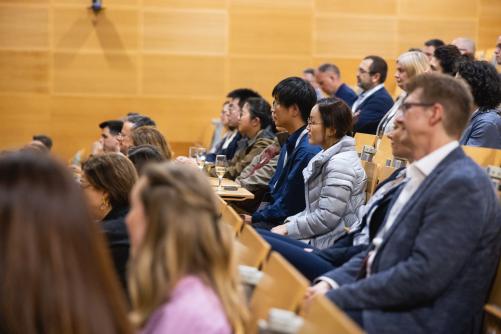
During the Digital Universities Europe conference, digitalization also appeared in its practical aspect. Many teams and university representatives presented case studies of implementing specific technological solutions for student services, staff management, planning, as well as assessment and training on the use of artificial intelligence in academic practice. This close and valuable insight into the internal processes of several dozen European universities will remain a unique experience for the conference participants.
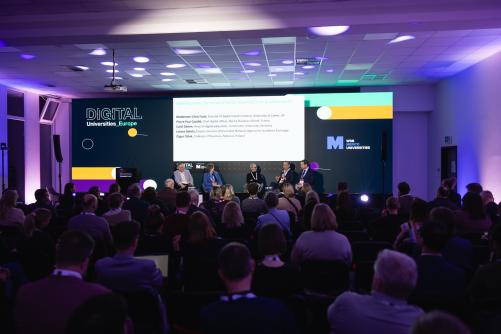
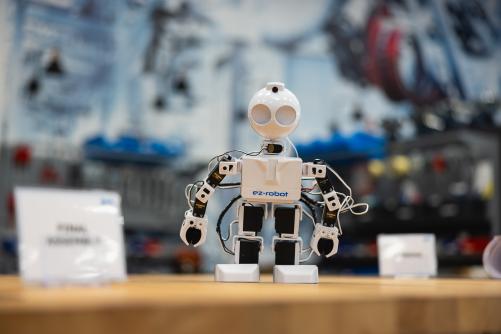
The conference is organized cyclically by Times Higher Education – a global provider of data and specialized knowledge about higher education, and the creator of international rankings. The co-organizer of the event is the largest group of private universities in Poland – the Merito Group, which includes WSB Merito Universities, the University of Lower Silesia (DSW), and Civitas University.
The honorary patron of the event is the Minister of Science and Higher Education, and the partners are the National Agency for Academic Exchange and the Polish Educational Union.
 You’re in the right spot! We have changed our name to DSW University of Lower Silesia!
You’re in the right spot! We have changed our name to DSW University of Lower Silesia! 





